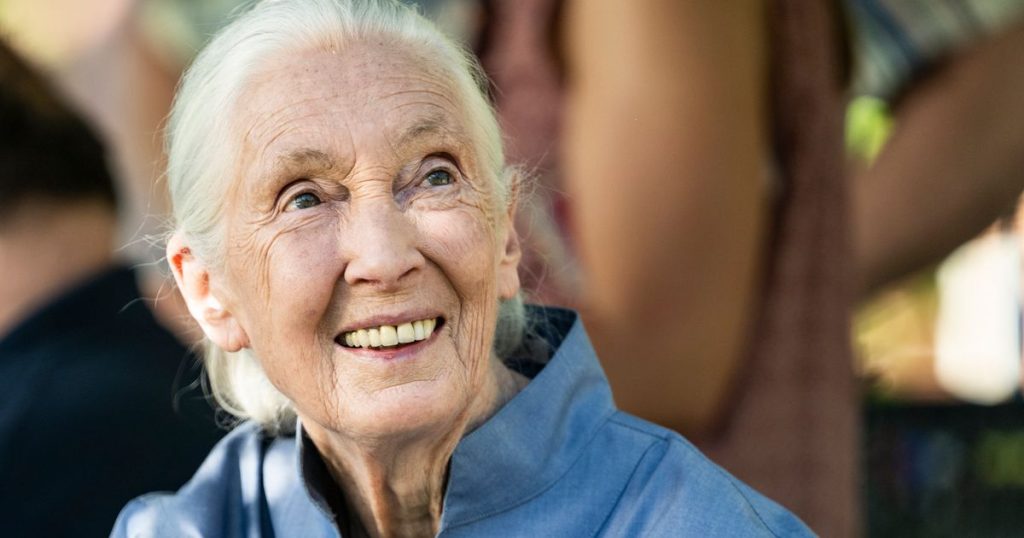Jane Goodall, the iconic primatologist known for her groundbreaking research on chimpanzees that began in 1960 in Tanzania, is credited with changing how the world perceives these animals. Despite facing criticism from the scientific establishment in her early career for naming and attributing emotions and intelligence to the animals she studied, Goodall remained steadfast in her beliefs. She drew inspiration from her childhood dog, Rusty, who defied the prevailing belief that animals do not possess complex emotions and intelligence. Goodall credits Rusty with teaching her that animals, including dogs, are capable of experiencing emotions similar to humans and are highly intelligent beings.
Rusty, a neighborhood dog who visited Goodall’s family home frequently, left a lasting impact on the primatologist. She describes Rusty as a special dog who exhibited emotions and intelligence beyond what was commonly believed at the time. Goodall’s close relationship with Rusty reinforced her beliefs about the emotional and intellectual capacities of animals, shaping her approach to studying chimpanzees and other wildlife. Throughout her career, Goodall has emphasized the importance of recognizing and respecting the emotions and intelligence of animals, including dogs, cats, and other domestic companions, highlighting the meaningful relationships that can be formed with them.
While Goodall is internationally recognized for her research on chimpanzees and her contributions to the field of primatology, she has consistently expressed her deep admiration for dogs. In a 2015 video published by the Jane Goodall Institute, she proclaimed dogs as her favorite animal due to the lessons they have taught her, their unwavering loyalty, and their ability to offer unconditional love. Goodall’s affinity for dogs goes beyond her professional pursuits and extends to her personal life, where she values the companionship and bond she shares with these animals. She believes that dogs, like other animals, deserve recognition for their emotional depth and problem-solving abilities.
Goodall’s passion for animals and her understanding of their complex behaviors have been influenced by her childhood experiences with Rusty and other domestic pets. She has consistently advocated for animal welfare and the importance of developing meaningful relationships with animals based on empathy, respect, and understanding. Her work with chimpanzees, in particular, has served as a blueprint for how humans can learn from and coexist with animals harmoniously. By acknowledging the emotional and intellectual capacities of animals, Goodall has challenged traditional scientific paradigms and inspired a new generation of researchers to explore the rich lives of animals beyond mere utility or species-specific traits.
Despite facing criticism and pushback from the scientific community early in her career, Jane Goodall’s pioneering work has reshaped the way humans perceive animals and their cognitive abilities. Her dedication to studying and championing the cause of animals, including her beloved dogs, has served as a beacon of hope for conservationists, researchers, and animal lovers worldwide. Through her advocacy efforts and groundbreaking research, Goodall continues to inspire individuals to cultivate empathy, compassion, and understanding towards animals, encouraging a shift towards more respectful and compassionate treatment of all living beings. Her legacy as a primatologist, activist, and animal advocate is a testament to the enduring impact that the bond between humans and animals can have on shaping a more harmonious and compassionate world.


